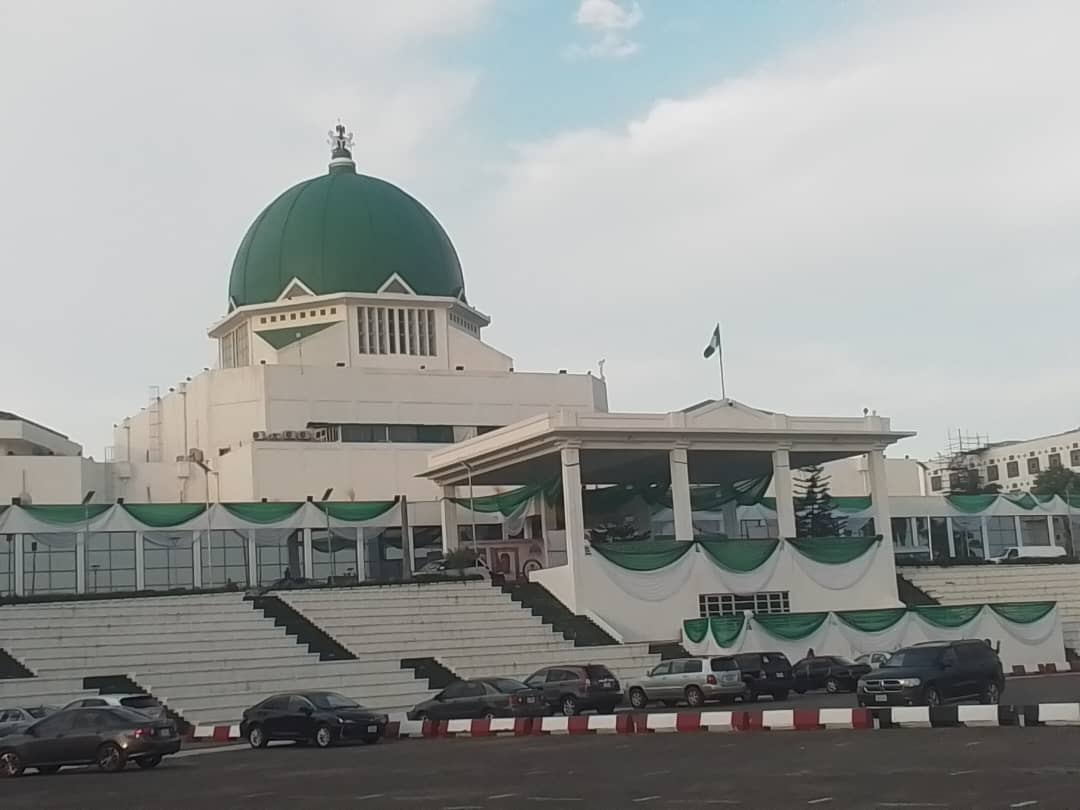NATIONAL NEWS

TINUBU SEEKS NATIONAL ASSEMBLY’S APPROVAL FOR $2.3BN EXTERNAL LOAN
President Bola Tinubu has requested the approval of the National Assembly for a fresh external borrowing of $2.3 billion, alongside plans to issue a $500 million sovereign Sukuk as part of Nigeria’s first venture into the international Islamic finance market.
The request, presented in a letter read by Speaker Tajudeen Abbas on the floor of the House of Representatives on Tuesday, is in line with Sections 21(1) and 27(1) of the Debt Management Office (DMO) Establishment Act, 2003.
According to the President, the borrowing plan aims to provide external financing for the implementation of the 2025 Appropriation Act, refinance maturing Eurobonds, and broaden Nigeria’s debt instruments to include Islamic finance options.
Tinubu stated that the 2025 fiscal framework projects a total of $9.27 billion in new borrowings to bridge the budget deficit, of which $1.84 billion will be sourced externally at an assumed exchange rate of ₦1,500 per dollar.
He explained that the loans would be raised through a variety of instruments, including Eurobonds, syndicated loans, bridge financing, or direct multilateral loans, with the goal of optimizing borrowing costs and managing associated risks effectively.
A key aspect of the proposal is the refinancing of Nigeria’s $1.118 billion Eurobond, issued in 2018 at a 7.625% coupon rate, and due in November 2025.
“This is a standard practice in debt capital markets,” the President noted, emphasizing that refinancing through Eurobonds or syndicated loans would enhance debt sustainability and investor confidence.
Tinubu added that refinancing maturing obligations forms part of Nigeria’s routine debt management process, which is essential for sustaining fiscal credibility.
The letter also revealed the government’s plan to issue a $500 million international sovereign Sukuk, aimed at deepening Nigeria’s participation in the global Islamic finance market.
The initiative follows the success of domestic Sukuk issuances, which have generated ₦1.39 trillion since 2017, funding critical infrastructure projects, particularly road construction.
According to Tinubu, the proposed international Sukuk will help close Nigeria’s infrastructure funding gap while expanding its investor base.
The government is also exploring a credit enhancement guarantee from the Islamic Corporation for the Insurance of Investment and Export Credit (ICIEC), a member of the Islamic Development Bank (IsDB) Group, to strengthen the bond offering.
Tinubu explained that if the ICIEC guarantee is activated, 25% of the proceeds would be used to offset high-cost debts, while the remaining funds would be directed toward pre-approved infrastructure projects.
He assured lawmakers that the Federal Ministry of Finance and the DMO would work with reputable transaction advisers to secure favorable pricing and terms amid global market fluctuations.
Tinubu expressed confidence in Nigeria’s strong track record as a credible issuer in international capital markets, noting that the new transactions would reinforce investor trust and promote fiscal discipline.
The fresh borrowing request comes as Nigeria faces the dual challenge of financing a significant budget deficit while managing its growing debt portfolio.
As Africa’s largest economy, the federal government continues to balance its infrastructure-driven growth agenda with efforts to maintain debt sustainability.
The 2025 budget projects a total borrowing of $9.27 billion, including $1.84 billion from external sources.
Analysts note that the administration’s approach — combining domestic and external borrowing — reflects a strategic response to rising inflation, exchange rate volatility, and high global interest rates.
Nigeria’s success with local Sukuk issuances has shown the potential of Islamic finance in funding development projects. Expanding this model to international markets could improve the nation’s credit standing and reduce reliance on traditional borrowing channels.
Experts also believe that the proposed ICIEC-backed Sukuk could lower borrowing costs and attract more global investors. Allocating part of the proceeds to repay expensive debts underscores a prudent and forward-looking debt management strategy by the government.
"This represents a significant development in our ongoing coverage of current events."— Editorial Board









